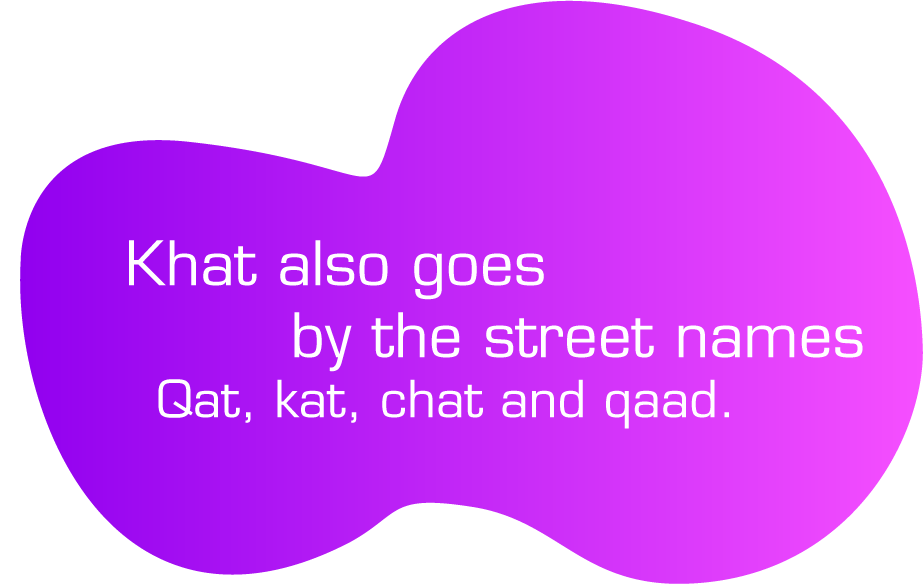Drugs Explained


Khat
Khat is a stimulant drug, which means it speeds up the messages going between the brain and the body.
Chewing khat is part of some social traditions in parts of the Middle East, such as Saudi Arabia and Yemen, and in Eastern Africa, such as Somalia.
The buds and leaves of the khat plant (Catha edulis) are chewed for stimulant and euphoric effects, and traditionally have been used for medicinal purposes as well as recreationally. Khat contains cathinone and cathine, which are the chemicals that produce the stimulant effects.
What does Khat do to you?
Khat is possibly unsafe for most people when taken by mouth. Although it isn’t associated with physical addiction, it can cause psychological dependence.
Khat can cause many side effects including:
- mood changes
- increased alertness
- excessive talkativeness
- hyperactivity
- excitement
- aggressiveness
- anxiety
- elevated blood pressure
- manic behaviour
- paranoia
- psychoses
Trouble sleeping, loss of energy, and lack of concentration usually follow.
Other effects include:
- rapid heart rate
- heart palpitations
- increased blood pressure
- faster breathing rates
- sweating
- eye changes
- mouth ulcers
- inflamation of the esophagus and stomach
- gum disease
- jaw problems (TMJ)
- constipation
What are the risks?
Regular use in young people is linked to high blood pressure.
Severe side effects include migraine, bleeding in the brain, heart attack, lung problems, liver damage, changes in sex drive, and sexual impotence.
Chewing khat leaves has led to infections that can cause problems such as pain below the ribs, changes in white blood cells, and an enlarged liver.





